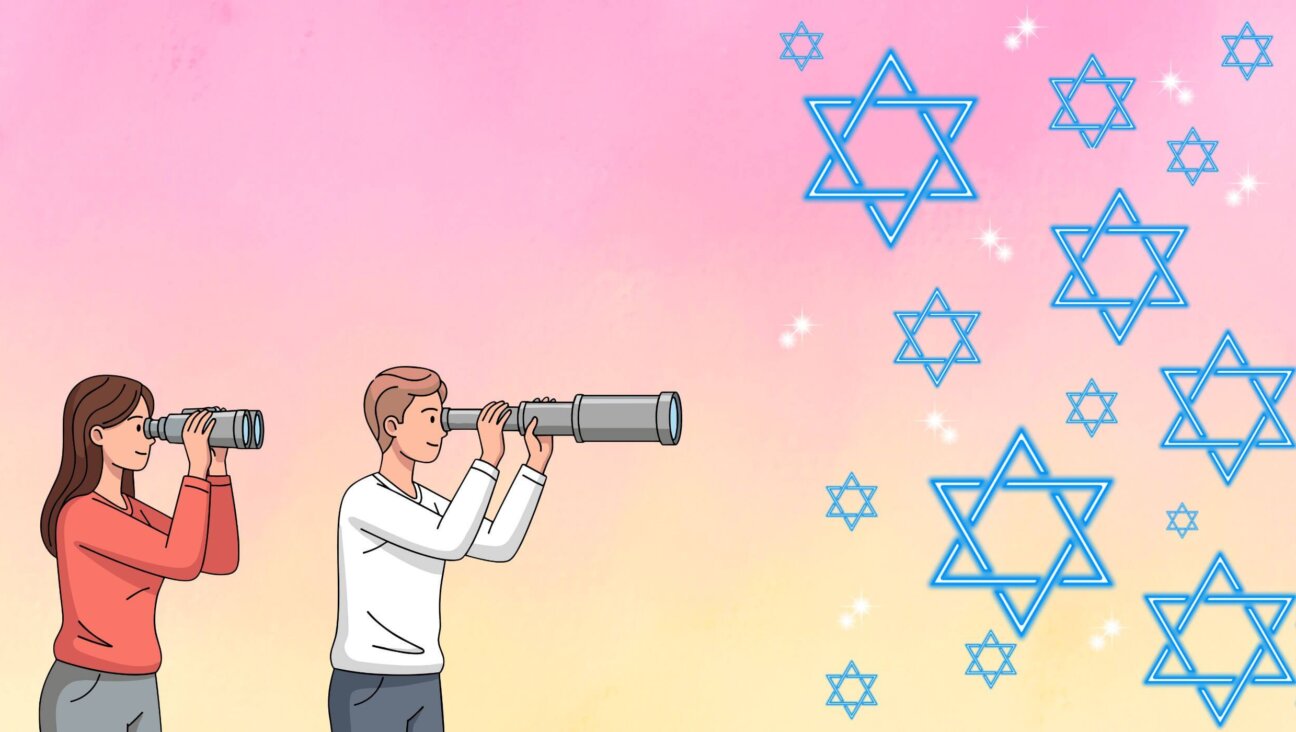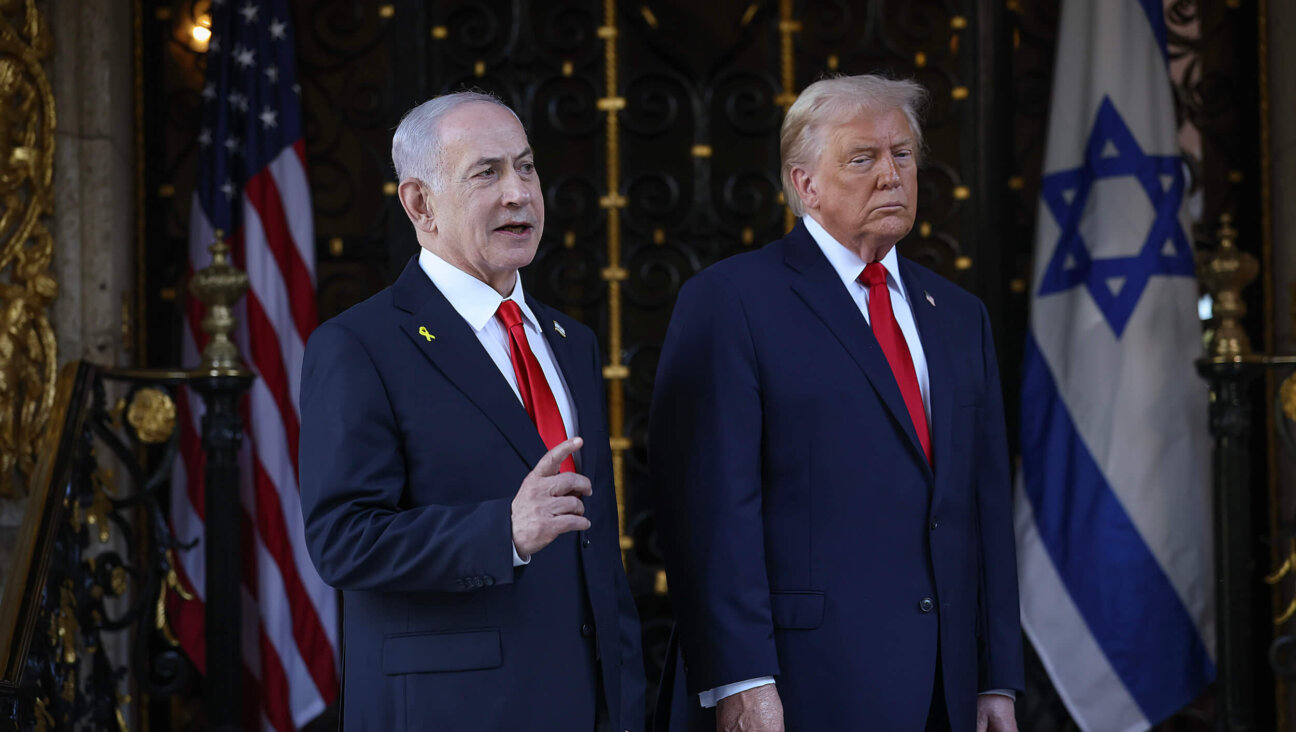A Tradition of Questioning Tradition
Despite the classic worries that American Jews are evaporating into America at a rapid pace, a study recently issued by the American Jewish Committee gives an indication of just how distinctive Jews have remained here in the great melting pot.
The report, by Tom Smith of the National Opinion Research Center, reveals that Jews are older, better educated, better off, have longer-lasting marriages and smaller families, and reside closer to urban centers than other Americans do. More to the point, Smith finds that Jews display a distinctive commitment to education, learning and the pursuit of knowledge.
Consider, for instance, people’s views about child rearing. Compared with all other ethnic and religious groups, Americans Jews were more likely to value “thinking for oneself” as the most important quality to encourage in one’s children (71% compared with 50% for non-Jews), ranking it higher than working hard, helping others, obedience and being well liked.
This quality of thinking for oneself and being open to questioning stood out as distinctively Jewish at a retreat held earlier this month for newly minted teachers working in Catholic and Jewish private schools. At various points during this two-day meeting, which was sponsored by the University of Notre Dame, the program paired Jewish and Catholic educators to study texts relevant to the enterprise of teaching — first a section of the Talmud, and later a passage from Rabbi Abraham Joshua Heschel. Encountering this literature and learning chevruta style were novel experiences for Catholic participants, who, as one put it, found it striking how “you wrestle with texts.”
Indeed, the Jewish educators were especially fluent in asking questions and in probing the texts, finding suggestions in the way things were formulated, seeking meaning and truth in the words. This sort of wrestling may bespeak a related quality: the idea of having a critique of a tradition, the ability to question freely and without inhibition, the valuing of difficult questions. In short, it suggests a habit of mind that may be characteristically Jewish, and one worth fostering.
This habit of questioning and wrestling brings to mind a story about Nobel laureate Isidor Rabi, who attributed his becoming a scientist (rather than a doctor or a lawyer, like most other immigrant Jews) to his mother’s way of greeting him after school. While most Jewish mothers asked their children, “Did you learn anything today?” Rabi’s mother asked him, “Did you ask any good questions today?”
Inasmuch as the retreat threw into relief the Jewish openness to questioning, it also highlighted a number of areas that posed difficulties for many of the Jewish participants. It was impressive to see the Catholic educators’ fluency in speaking about their “faith” and its meaning in their work. When asked, “How does your faith inform your teaching?” many described themselves as “experiencing God’s love, being grateful for the gifts God has given me and wanting to share those gifts with others.” That these formulations were heartfelt, widely shared and readily accessible indicated habits of mind and heart springing from a very different religious experience.
In contrast, the Jewish educators found the question itself hard to comprehend. “What do you mean by faith?” came the initial response. This term doesn’t translate smoothly between the two traditions. It could mean “trust in God,” or the idea that God will take care of things, or the belief that God exists. And all this talk of God then raises the question, “God as defined by whom?”
The very concept of faith was sufficiently perplexing for some participants to begin calling it “the f-word” by midretreat. The questions came freely, but the answers were more elusive. Rather than speaking about faith and God as the source of their inspiration, these Jewish educators identified their feelings of belonging to the Jewish people, their connections to Jewish tradition as wellsprings for their work. So they could speak about aspects of their Jewishness that were meaningful and motivating for them, but the talk about faith and God was more problematic.
Which raises the question, why?
Perhaps it is because, only 60 years after the Holocaust, talk of faith and God remains difficult. “Give us 100 or 200 years, and maybe we can speak that way,” one of the Jewish educators quipped.
Another reason might be that that faith isn’t a requirement for Jewish religious life. Although it’s a cliché, it’s nonetheless true that Judaism privileges actions over beliefs. This valuation means that a wide range of beliefs can fit legitimately within the Jewish spiritual umbrella. The focus on doing rather than on thinking or believing allows room for individuals’ thoughts. In making a minyan, no one’s belief is being scrutinized.
Though one can lapse from the Catholic tradition, there is no such thing as a “lapsed Jew.” There is only, as playwright Tony Kushner once described himself, a “failed Jew” — a person whose feeling of “discontent, discomfort, dislocation and disinclination” makes him or her “if not a Jew in good standing, then at least unmistakably Jewish.”
Bethamie Horowitz, a social psychologist, is research director for the Mandel Foundation.
















